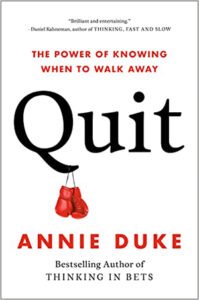|
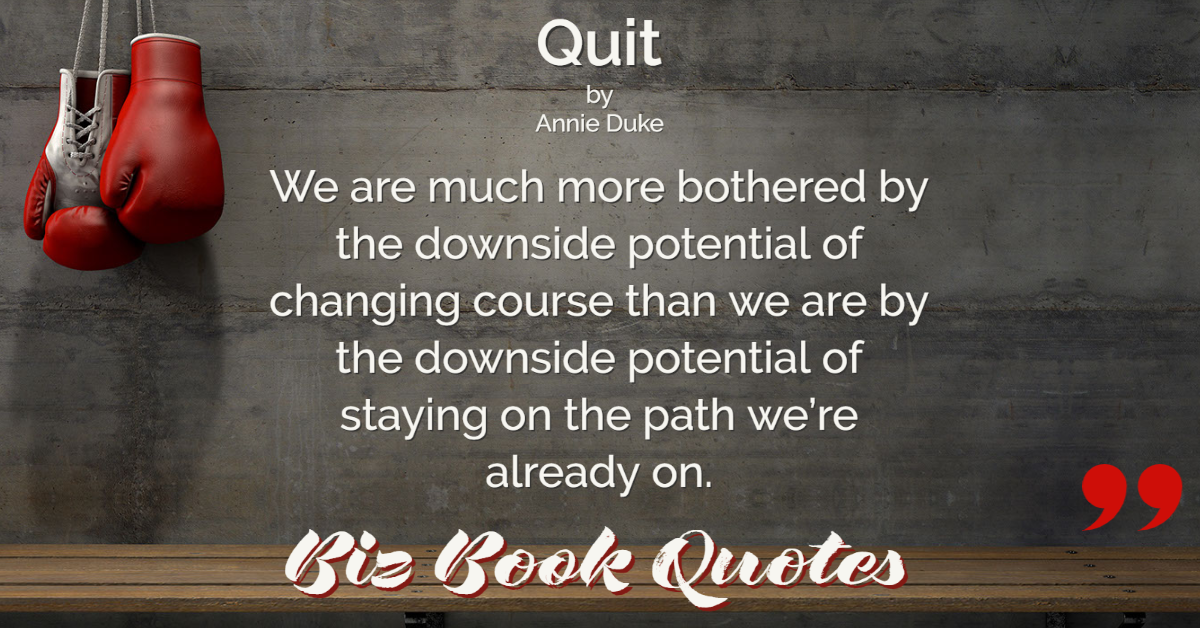
|
Quit:
We are much more concerned with errors of commission than errors of omission (failures to act).
|
152 |
|
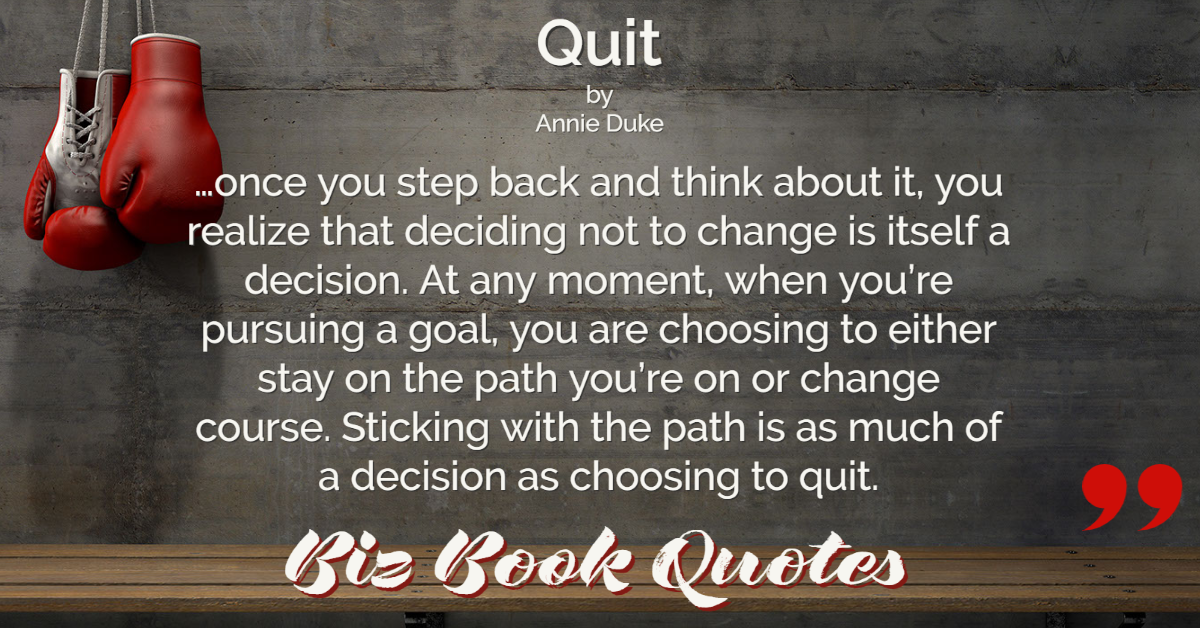
|
Quit:
…once you step back and think about it, you realize that deciding not to change is itself a decision. At any moment, when you’re pursuing a goal, you are choosing to either stay on the path you’re on or change course. Sticking with the path is as much of a decision as choosing to quit.
|
152 |
|
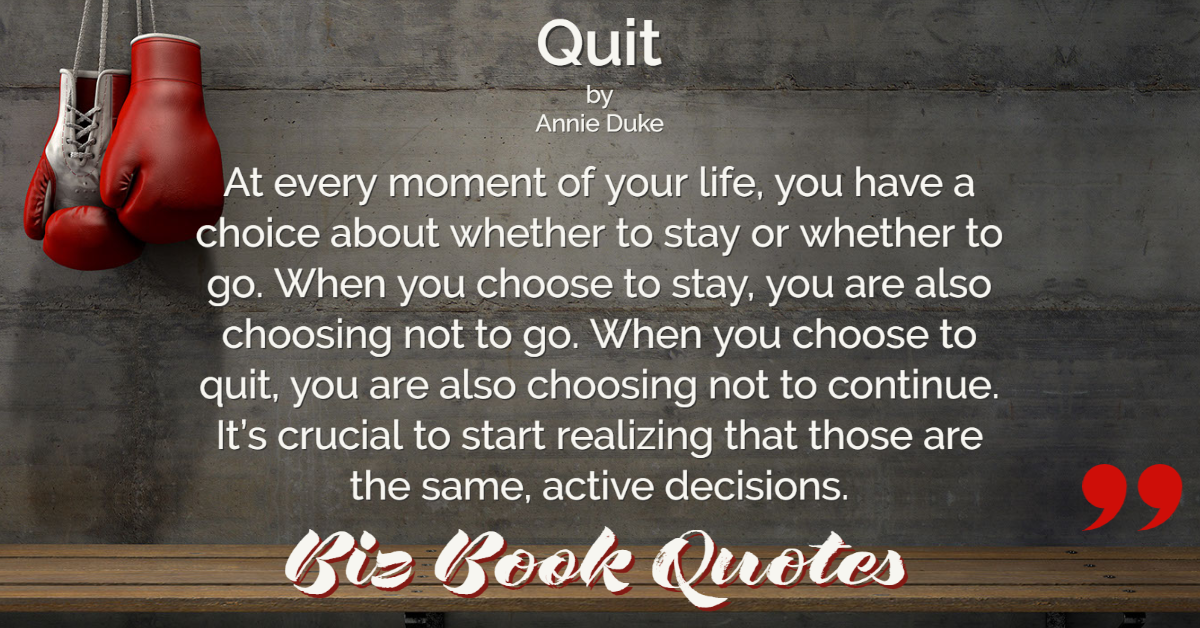
|
Quit:
At every moment of your life, you have a choice about whether to stay or whether to go. When you choose to stay, you are also choosing not to go. When you choose to quit, you are also choosing not to continue. It’s crucial to start realizing that those are the same, active decisions.
|
152 |
|
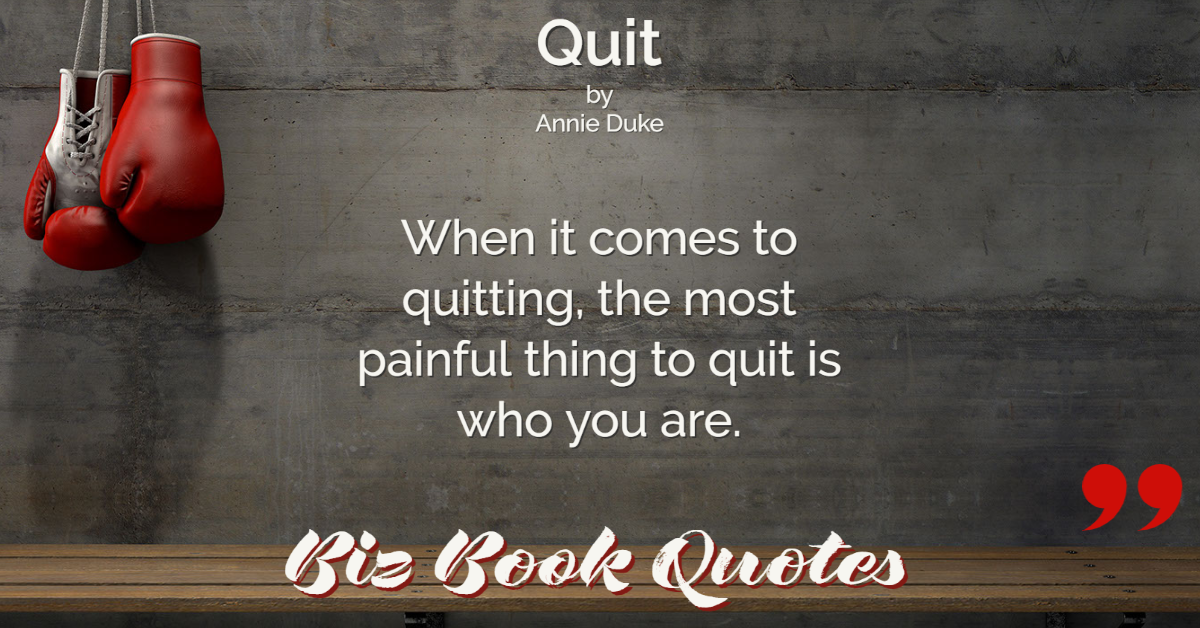
|
Quit:
When it comes to quitting, the most painful thing to quit is who you are.
|
163 |
|
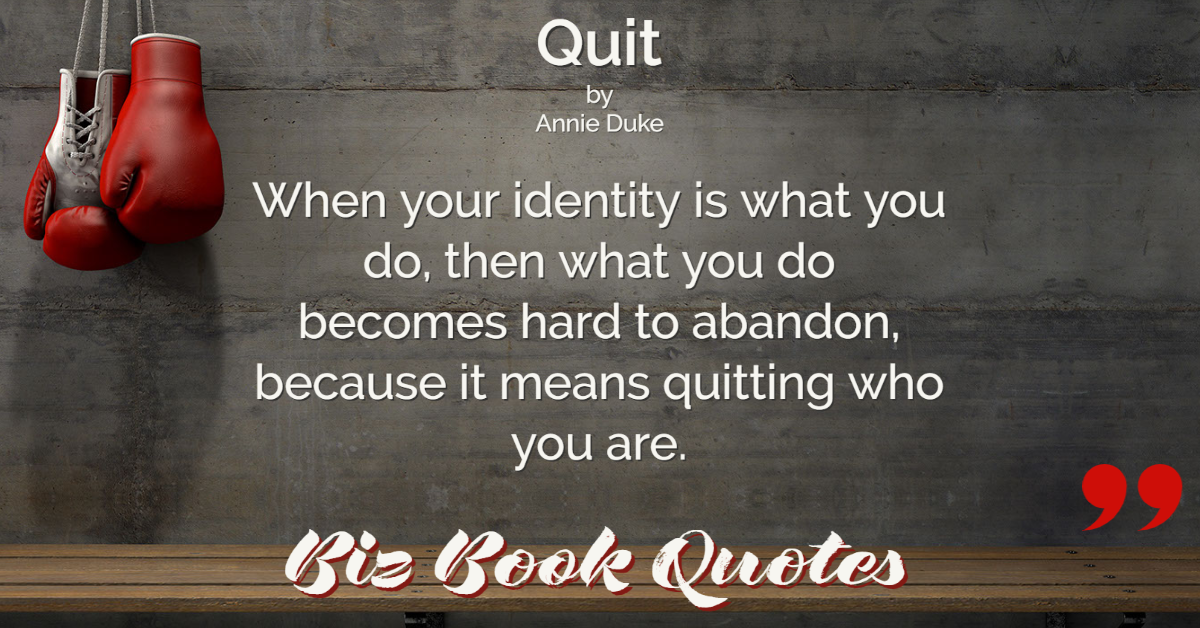
|
Quit:
When your identity is what you do, then what you do becomes hard to abandon, because it means quitting who you are.
|
168 |
|
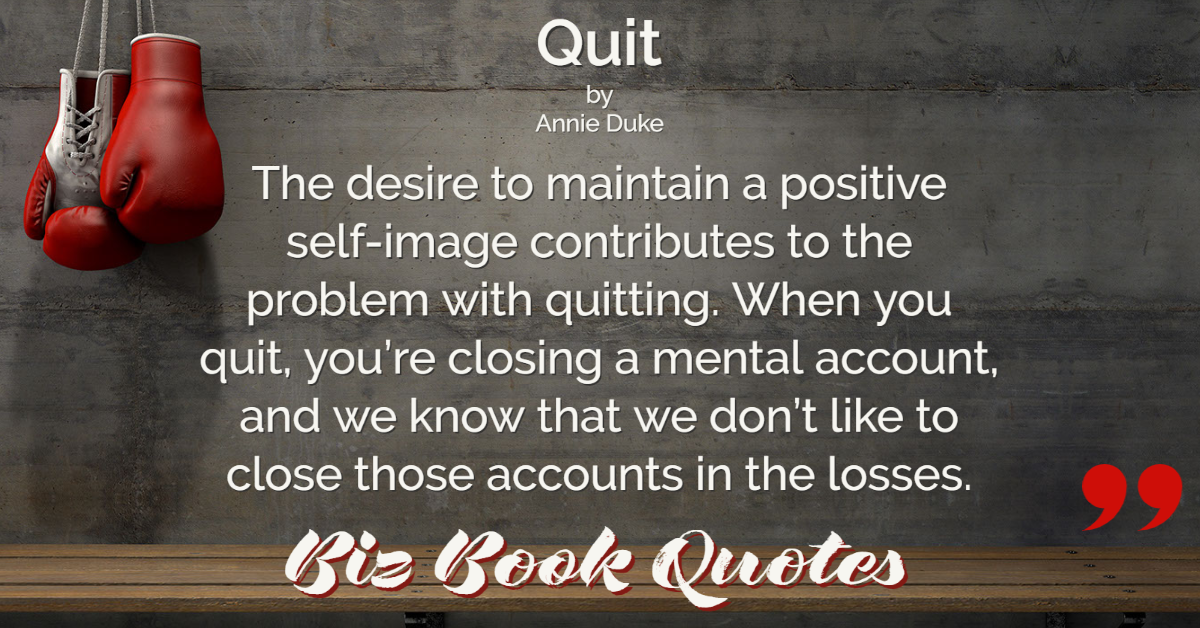
|
Quit:
The desire to maintain a positive self-image contributes to the problem with quitting. When you quit, you’re closing a mental account, and we know that we don’t like to close those accounts in the losses.
|
171 |
|
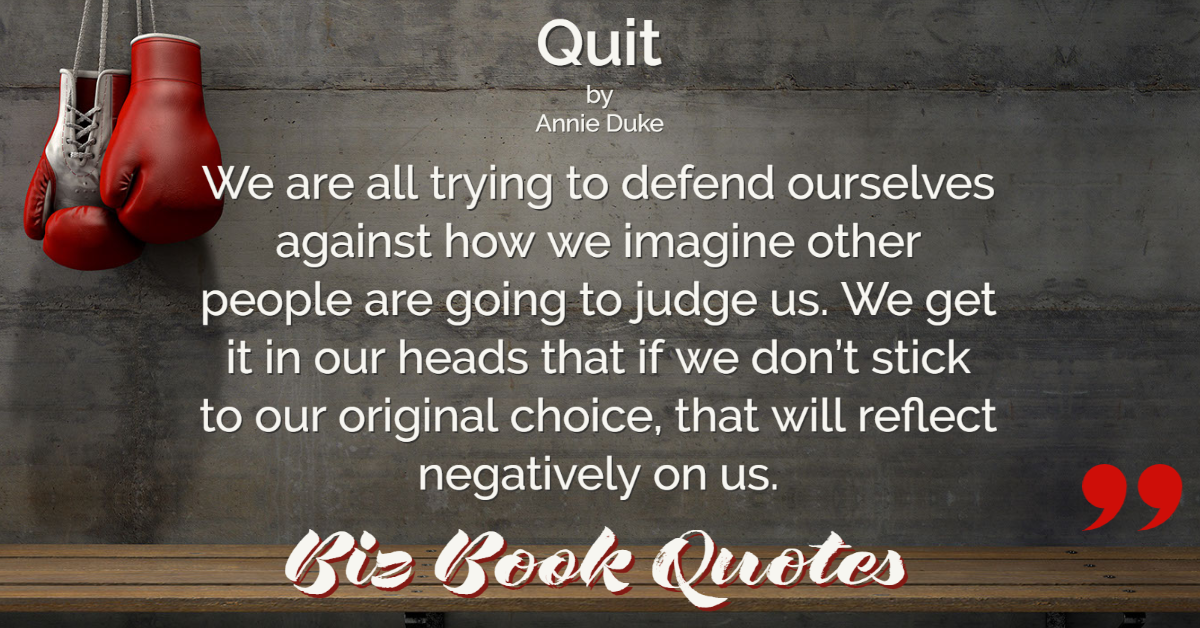
|
Quit:
We are all trying to defend ourselves against how we imagine other people are going to judge us. We get it in our heads that if we don’t stick to our original choice, that will reflect negatively on us.
|
172 |
|
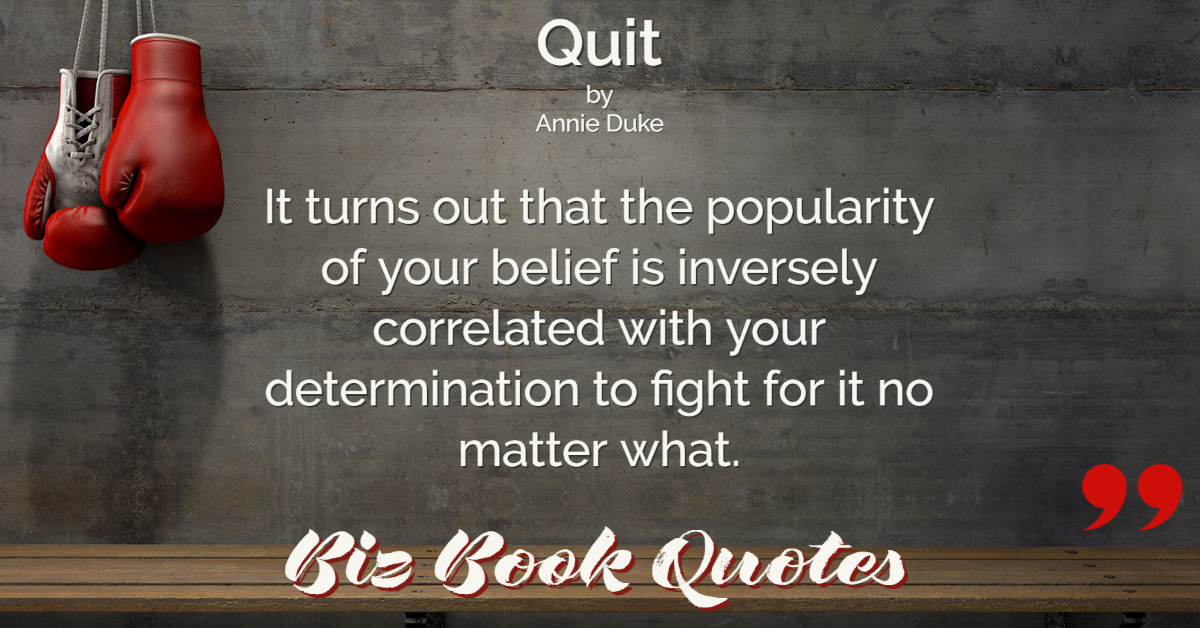
|
Quit:
It turns out that the popularity of your belief is inversely correlated with your determination to fight for it no matter what.
|
173 |
|

|
Quit:
If extreme positions become more integral to who we are, we ought to see less escalation of commitment from those with consensus positions.
|
174 |
|
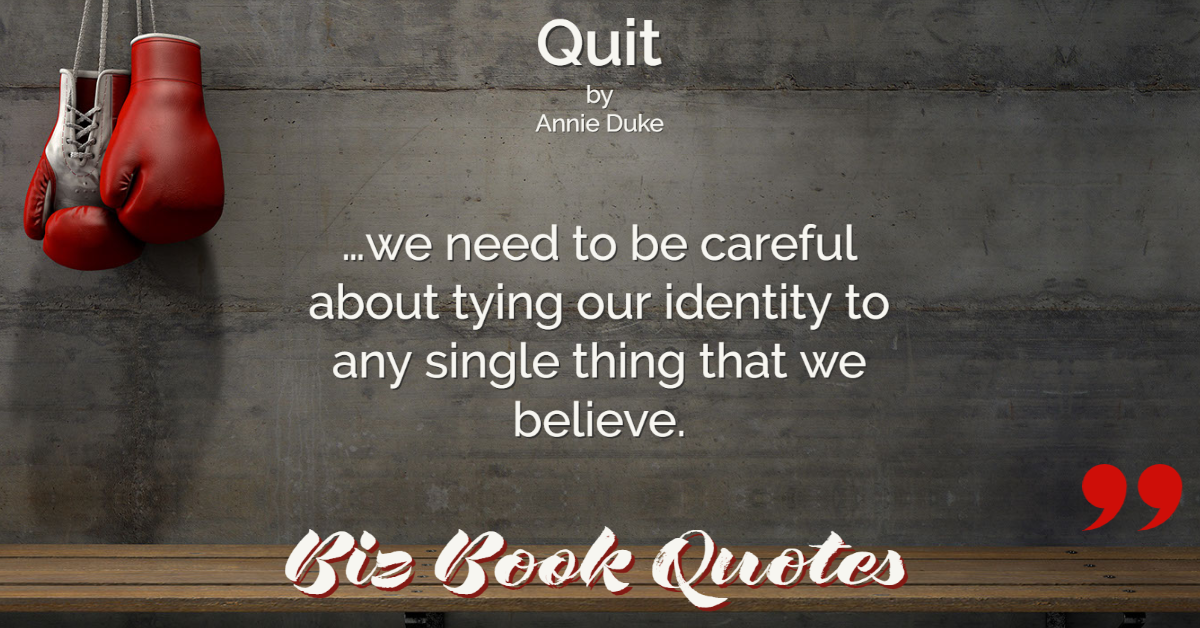
|
Quit:
…we need to be careful about tying our identity to any single thing that we believe.
|
175 |
